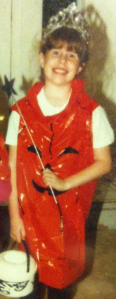I admit quite a weakness for the Christmas movie genre. Whether it’s The Santa Clause, The Muppet Christmas Carol, or the latest by-the-numbers Hallmark tearjerker, I am a sucker for movies themed around “the most wonderful time of the year.” So every year around this time, I find myself watching every Christmas movie I can get my hands on. And every year I am reminded of the surprising number of movies that contain Christmas and yet aren’t quite Christmas movies. Today we’re going to talk about two of my favorite “Not Quite Christmas Movies.”
Gremlins
Gremlins is a movie that traumatized a generation. The trauma it inflected on families who thought they were going to see a cute holiday movie about a boy who gets a Mogwai combined with Indiana Jones and the Temple of Doom convinced movie-makers that the PG-13 rating needed to be invented. Thus most people remember Gremlins as a movie about breaking rules and the horrible things that can ensue. Any if you’re like me, you often forget it’s even a Christmas movie.
And yet, it is. This movie takes place at Christmas. That is why Billy gets Gizmo in the first place. He is a Christmas present.
This movie isn’t really about Christmas at all. There isn’t a particularly Christmas-like moral. There is no Christmas miracle that saves the town. Santa doesn’t show up at the end, and there is no mention of the religious implications of anything. So why was it that the creators of this film chose to set it at Christmas time when Billy could have just as easily gotten Gizmo as a gift for his birthday?
I’m not really sure. Personally I think it’s to contrast the destruction of the gremlins with the expectation of a Christmas “silent night.” But other than that, there is no particular reason for this movie to take place at Christmas.
Iron Man 3
I always forget this movie takes place at Christmas. I’ll be marathoning Marvel movies, this one will be up next on the list and suddenly Tony Stark is dancing to Christmas music. 
And every time I watch this movie I ask myself one question: Why? Why does this movie take place at Christmas time?
The answer is I have no idea. I have watched this movie innumerable times and I have yet to figure out why exactly it takes place during this festive time of year. It’s rare that I can’t even begin to hypothesize why a Marvel movie does what it does, because breaking down Marvel movies to their smallest detail is what I love to do, but frankly I’ve got nothing. Other than I suppose watching Tony Stark dance to Christmas carols is pleasant.
These are just two examples of not-quite Christmas movies. From Die Hard to Edward Scissorhands, there are a fair number of movies that take place at Christmas but have nothing to do with the holiday itself.
Personally I think not only is this a good thing, but it’s an important thing. Movies like Iron Man 3 and Die Hard show us that life doesn’t stop just because it’s the holidays. Our lives don’t magically transform into romantic comedies where Santa sets us up with the person of our dreams. Life still goes on as normal, and heck, sometimes life gets harder. Because sometimes we’re dealing with the drama of Christmas while Aldrich Killian is blowing up our Malibu mansion.
And this is why in the midst of all my sappy movies about matchmaking Santas, time traveling Scrooges, and claymation characters, I still find time for Gremlins and Iron Man 3. To remind me that while Christmas is important, sometimes it’s nothing more than a backdrop to an even grander adventure.











 And it’s happening. Slowly yet surely it’s happening. This week Ms. Marvel, a comic book starring a Muslim teenage girl in New Jersey,
And it’s happening. Slowly yet surely it’s happening. This week Ms. Marvel, a comic book starring a Muslim teenage girl in New Jersey,






 s a responsibility to stand up for what is right and good in the world. That every person should work towards the common good and, should the need arise, lay down their life for someone. Superheroes as a group are fairly invulnerable (Hawkeye excepting). It doesn’t take a lot of bravery to step in front of a bullet when you know it can’t hurt you.
s a responsibility to stand up for what is right and good in the world. That every person should work towards the common good and, should the need arise, lay down their life for someone. Superheroes as a group are fairly invulnerable (Hawkeye excepting). It doesn’t take a lot of bravery to step in front of a bullet when you know it can’t hurt you.







